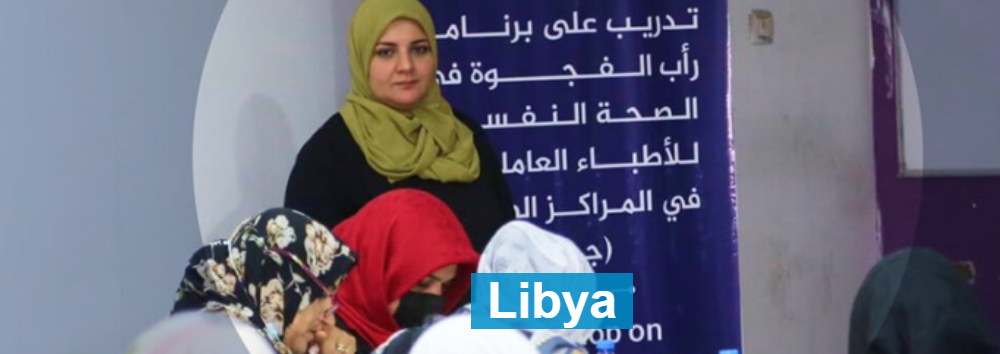Outbreak and Crisis Response Appeal 2023

People in need: 2.47 million
People targeted: 800 000
People in need of health assistance: 3.8 million
Requirements (US$): 25.3 million
Context
This past year has continued to challenge Libya’s already fragile and severely damaged health system. Health care continues to be the most significant need for many people, particularly non-Libyan migrants and refugees who lack sustained access to primary and secondary health care. This includes limited access to appropriate health care for chronic and infectious disease, obstetric complications and mental health conditions and disorders.
In addition, the COVID-19 pandemic has exacerbated the system’s fragility, highlighting issues such as poor capacity and uneven distribution of the health workforce; chronic shortages of medicines, equipment and supplies; and the paucity of public health facilities that offer a standard package of essential health care services.
In 2021, reports indicated that up to 90% of primary health care (PHC) centers were closed in some areas. One-third of all health facilities in the south and east of Libya were not functioning and 73% in the south and 47% in the east were functioning only partially, mainly due to shortages of staff and medical supplies. Of the total number of health facilities assessed in 2021, 37% were reported to be either fully or partially damaged. The situation is even more critical in remote and hard-to-reach areas. Over the course of 2022, there have been recurrent surges of COVID-19 cases, and reported shortages of routine vaccines, life-saving medicines and human resources in health facilities across the country.













